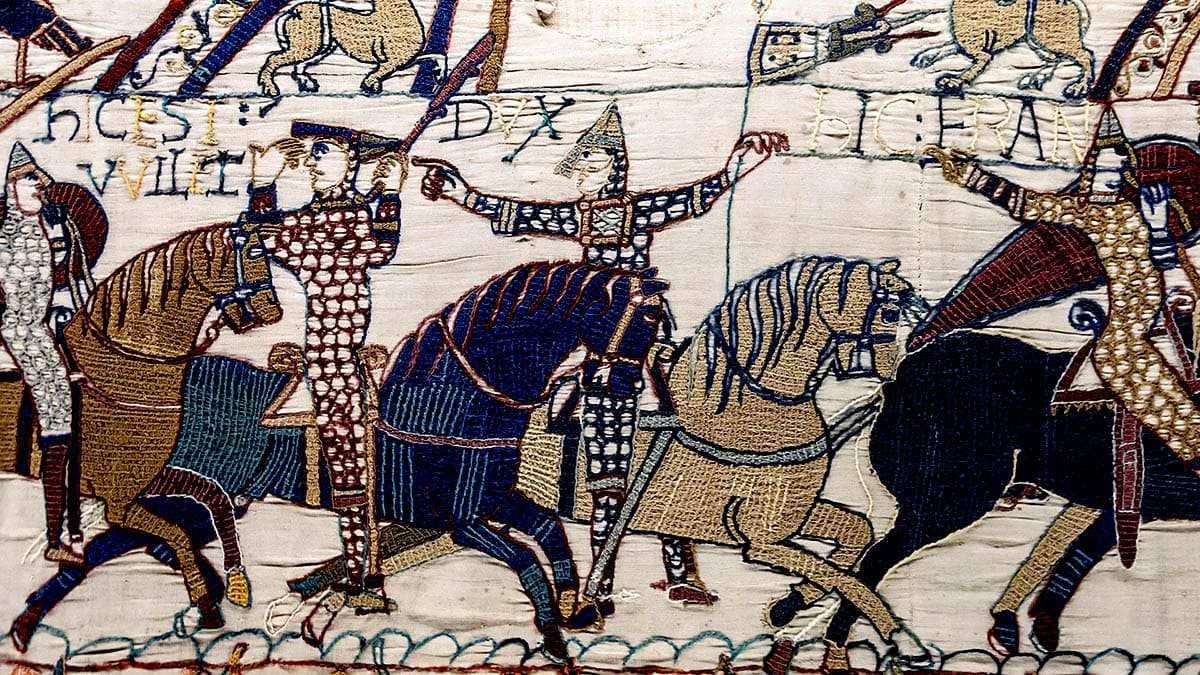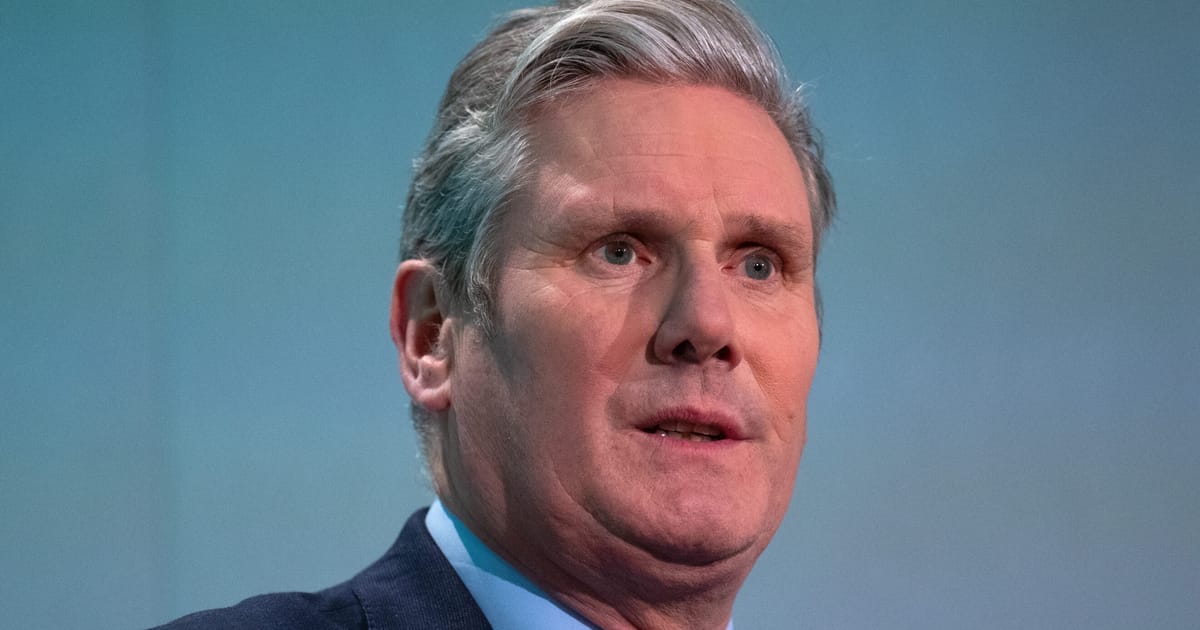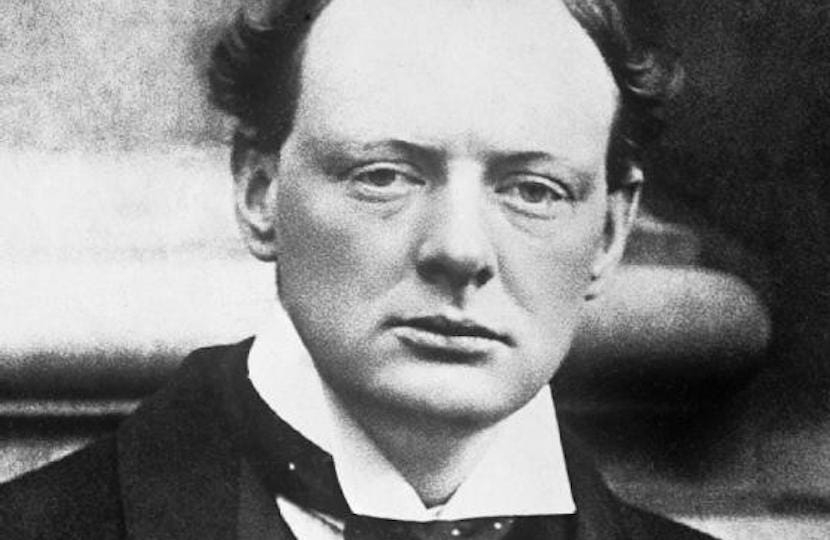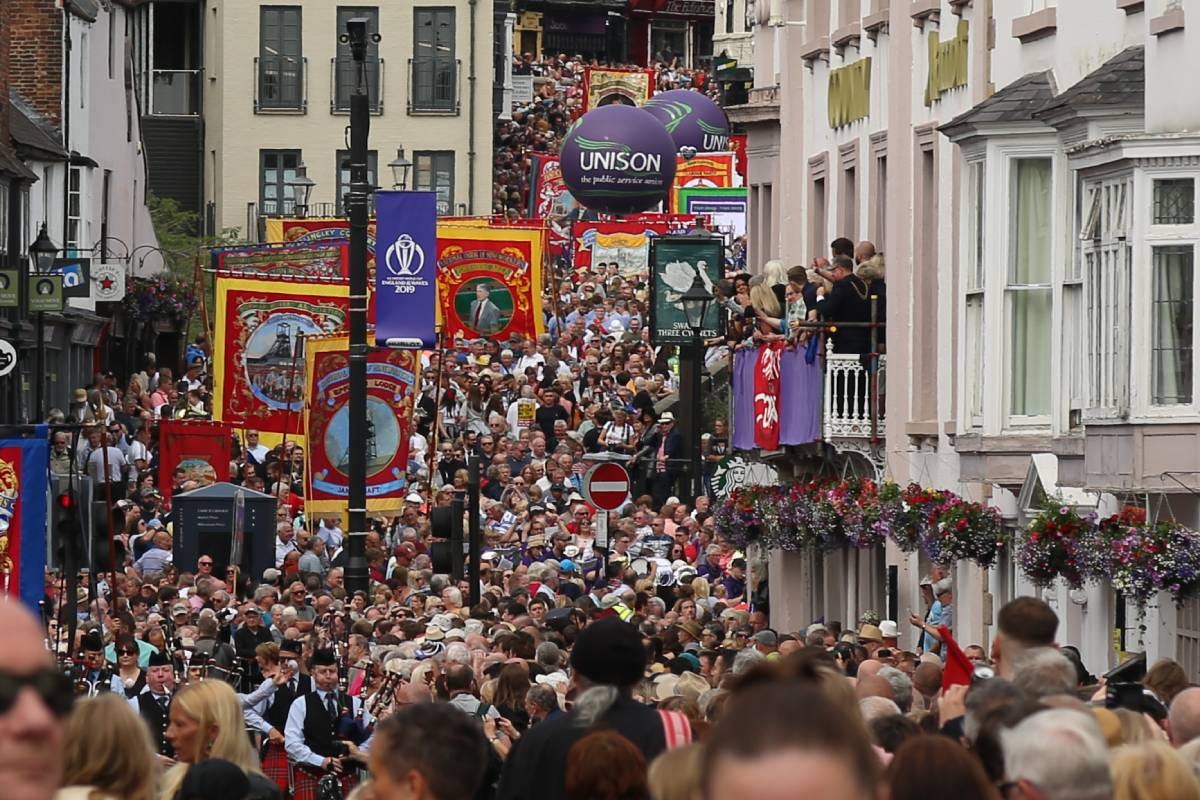The rest is history: we all work in its shadow
Politicians on the right are often accused of being obsessed by past glories, but history influences people across the spectrum in profound ways
It was probably the low point of the long, drawn-out journey of Brexit. In April 2019, the Bruges Group held a meeting—it would have been a rally if it had been more glamorous—for Brexiteers to express their frustration at the slow progress of agreeing a framework for the UK to withdraw from the European Union. Theresa May was still prime minister but had announced only weeks before that she would not lead the government into the next stage of negotiations, and on 29 March her third attempt to agree a deal had been defeated in the House of Commons. There was an air of exhausted exasperation: how was this deadlock to be broken?
First to speak was Mark Francois, Conservative MP for Rayleigh and Wickford and vice-chairman of the European Research Group. He had been shadow Europe minister under David Cameron but was moved sideways to the Whips’ Office in the 2010 coalition, then served as a junior minister at the Ministry of Defence from 2012 to 2015. An unlikely appointment as minister for communities and resilience in 2015 came to an end when May took office, and it left Francois at a loose end and disgruntled. But Brexit gave him a purpose, and he threw his energies into it.
His speech was based on the idea that the United Kingdom could not be held in the EU against its will, and so a deal would have to be agreed sooner or later, however unpalatable that was to the European Commission. As a prisoner of the community, he warned, “we will become a Trojan horse within the EU, which will utterly derail all your attempts to pursue a more federal project”. In its own way, it had a sharp political cunning: strip away the high-minded rhetoric and realise that the UK inside the EU unwillingly would be hugely disruptive and damaging, so it would be better for the leaders of Europe to send the United Kingdom on its way. But he had one more jumbled and minatory warning.
If you now try to hold us in against our will you will be facing perfidious Albion on speed.
That set what many people regarded as the tone of the pro-Brexit campaign. It was pugnacious—some might say hostile—it was nationalistic and, in its reference to “perfidious Albion”, it summoned up historical struggles between Britain and the Continent: the phrase is of very great antiquity but held to date in its modern formulation from the time of the French Revolution, when Augustin-Louis de Ximénès, a Franco-Spanish playwright, composed a poem entitled L’Ère des Français, in which he wrote “Attaquons dans ses eaux la perfide Albion”, let us attack perfidious Albion in her waters.
What Francois was trying to say, presumably, was that, however “perfidious” Britain had been thought in centuries past, a country bent on disruption would be many times more dangerous, “on speed” (one assumes Francois has never used methamphetamine, although it was common in the armed forces during the Second World War). His phraseology, however, and his manner were taken as indicative: here was a political movement defined by backward-looking nationalism and aggressive stereotypes.
And Francois had form. A few months before, in January 2019, the chief executive of Airbus, Tom Enders, had recorded a video message which was sharply critical of the government’s handling of Brexit, warned of negative economic consequences and referred to “the Brexiteers’ madness”. Francois seized on Enders’s nationality and warned in an emotional appearance on the BBC news, “My father was a D-Day veteran, he never submitted to bullying by any German. Neither will his son.”
It was cheap, low-rent politics which didn’t even pretend to advance the debate, but it is certain firstly that it struck a chord with a section of the electorate which, having voted for Brexit for a dozen different reasons, now wanted the matter closed, and secondly that it allowed the whole pro-Brexit movement to be portrayed as an essentially retrogressive, nostalgic, rather boorish one. Given that 17,410,742 people hate voted to leave the European Union, this was inevitably an unfair generalisation. But it stuck, and politicians like Francois helped it to stick.
What I want to argue, however is twofold. Firstly, that the Left draws as easily and freely on history as the Right, and with similarly variable accuracy; and secondly, that we shouldn’t see that in a negative light, because our history is an important element of who we are and how we conceive of our place in the world.
The first part is easy enough to demonstrate. Last month, Sir Keir Starmer, the leader of the opposition, wrote an opinion piece for The Sunday Telegraph—transgressive enough for many on the Left—in which he stressed that a future Labour government would have to effect genuine and meaningful change to fulfil the trust it sought from the electorate. To support his case, he pointed to three transformational leaders in recent British history: Clement Attlee, Margaret Thatcher and Tony Blair. Of the Iron Lady, he said:
Margaret Thatcher sought to drag Britain out of its stupor by setting loose our natural entrepreneurialism.
As it happens, I think this was mindless name-dropping. As I wrote at the time, Starmer’s world view contains nothing of which Thatcher would have approved, and I take the view that he and the Labour Party are still very suspicious of entrepreneurs and of wealth creation in general, as I explained in The Critic. But Starmer’s purpose was to try to reach beyond the core Labour vote and to extend his appeal to traditional Tory voters.
Whatever his intentions, Starmer’s nod to Thatcher provoked a firestorm of criticism from the Left. Ian Byrne, Labour MP for Liverpool West Derby, tweeted “Inequality, hunger, destitution & misery. That’s the real legacy left by Thatcher.” His Merseyside colleague Kim Johnson, MP for Liverpool Riverside, was uncompromising:
Margaret Thatcher did nothing for working class communities in Liverpool and across the country: destroyed industries, attacked trade unionists, privatised our core industries.
(You might dispute this, and point to Michael Heseltine’s work as “minister for Merseyside” in the early 1980s: there are arguments for and against his effectiveness, but here is not the place.)
John McTernan, Sir Tony Blair’s political secretary from 2005 to 2007, cautioned in The Guardian that Starmer had made a mistake: “praising Thatcher, however mildly expressed and highly qualified, is a strategic misstep”. Neil Findlay, a former Labour MSP, said that Starmer’s remarks would be disastrously received in Scotland. “I think people will be absolutely appalled by the comments,” he told BBC Radio Scotland, calling them “an insult to working class people across the entire country”.
Even shadow business secretary Jonathan Reynolds, interviewed on Sky News by Trevor Phillips, tried to explain that Starmer’s point had been that Thatcher had been an agent of change but, asked if he was fan of the Iron Lady, had to admit “No, I am not. But I can recognise that she was a formidable opponent.”
Anyone who has read a newspaper for the past decades would have been able to advise Starmer that this kind of reaction was likely; indeed, it was an inevitable corollary of his motivation in writing the article. My point is that this was a visceral, emotional reaction, expressed in the most heartfelt language, to vaguely positive comments about a political figure who had left office 33 years before, and had become leader of the Conservative Party nearly half a century previously.
The Left would—do—argue that Thatcher’s 11 years as prime minister had such a profound effect on Britain and on our economy that we are still feeling the aftershocks today. They may well be right. One’s view on Thatcher and Thatcherism is not the point here: I merely wanted to show that left-wing politicians are just as easily swayed by references to the past as those on the Right. Thatcher provokes deep-seated feelings and the responses are emotional as well as rational. There is nothing wrong with that, but we can’t pretend it doesn’t happen.
Thatcher is not the only trigger for those on the Left. Even a national hero like Winston Churchill can arouse anger in certain quarters. In 2019, shortly before the Bruges Group meeting, John McDonnell, then shadow chancellor and Jeremy Corbyn’s right-hand man, was asked at a Politico event whether Churchill was a hero or a villain. Pausing for a moment, he responded “Tonypandy—villain”. This was a reference to the miners’ strike in South Wales of 1910-11. In November, there was an outbreak of violence between striking miners and police from Glamorgan Constabulary, resulting in the death of one miner, Samuel Rhys, possibly after a blow from a policeman’s truncheon. Churchill is a hate figure because, as home secretary, he allowed units of the British Army to be deployed to South Wales to support the police.
In socialist mythology, this has blossomed into a narrative that soldiers fired at and killed striking miners, and that Churchill was the evil genius behind it, the archetypal anti-socialist willing to use every organ of state power to crush the workers. But is simply never happened. There is no record of soldiers firing a single shot, and the only units deployed were a squadron of the 18th Hussars and a company of the Lancashire Fusiliers. These were acting entirely in support of the police, and in fact behaved with much greater circumspection and restraint than did the police. Yet the word “Tonypandy” dogged Churchill throughout his career. As late as 1978, Churchill’s grandson, also Winston Churchill, Conservative MP for Stretford, asked the prime minister, James Callaghan, a question in the House of Commons about miners’ pay. Callaghan’s response—nearly 70 years after the riots in South Wales, remember—was extraordinary.
I do not propose to go into this matter myself. If the hon. Gentleman has any questions to put to my right hon. Friend the Secretary of State for Energy, no doubt he will do so. I hope that the hon. Gentleman will not pursue the vendetta of his family against the miners—[Interruption.]—at Tonypandy for the third generation.
It was cheap, vicious, inappropriate and based on a folk myth, and many MPs shouted “Cheap!” Churchill himself was incensed, and demanded that Callaghan “withdraw his wholly false smear accusation against my late grandfather, whose vendetta was against not the miners, but the Nazis?”. The deputy leader of the opposition, Willie Whitelaw, weighed in to ask if the prime minister might think “it would be sensible and wise to withdraw a cheap and totally unnecessary slur?”. Callaghan would not let it go.
The actions of the late Sir Winston Churchill in Tonypandy are a matter of historical dispute. I take one side of the quarrel. It may be that the right hon. Gentleman takes another side of that quarrel. I can only tell him what we in South Wales feel about the actions that were taken on that occasion. I hope that the hon. Member for Stretford (Mr. Churchill) will not pursue a vendetta against the miners.
The speaker, George Thomas, who had grown up across the river from Tonypandy and would take it as his peerage title when created a viscount in 1983, tried to curtail further discussion, but the anger on all sides was palpable. And if that was 68 years after the disputed events, how much more extraordinary is it that McDonnell should have felt the need to raise the controversy in a straightforward question-and-answer session 109 years afterwards?
The truth is, of course, that the Left is a steeped in history as the Right. Anyone who has seen the annual Durham Miners’ Gala (“gay-la”, please, not “gah-la”), that ancestor-worshipping display of admirable solidarity which began in 1871 and still takes place every July, knows how heavily the Labour movement draws on its roots and its heritage. The leader of the opposition’s very name, Keir, is in honour of the founder of the Labour Party, Keir Hardie. (I doubt we will see a Conservative leader called Margaret, or Winston, or Robert [Peel] any time soon.) And the Left handles history in just as complex and tricksy a way as does the Right: myths are presented as fact, history as morality tale. The events of times past are used as shorthand as well as example, not just to inspire but also to condense meaning and identify struggles with battles which have gone before. If Brexit was like the Second World War, so the miners’ strike of 1984-85 harked back to the General Strike of 1926, while the miners’ strike itself is a touchstone of the Left today. Look at Billy Elliot, or Brassed Off, or the epic Our Friends In the North: all of them feature the strike as a central part of their theology. And whole volumes could be written on the influence of Mel Gibson’s 1995 fun-but-ridiculous Braveheart, and the historical events it portrays, on Scottish nationalism.
None of this is said primarily in the spirit of criticism. I am the first to acknowledge the importance of history and myth, often conjoined twins, in shaping the world of today and our shared identity and consciousness. (I am also very aware of the malign uses to which they can be put.) There are endless quotations from great men and women about the importance of history, some of them more reliable in provenance than others. To take a few:
Confucius: “Study the past and you would define the future.”
Baruch Spinoza: “If you want the present to be different from the past, study the past.”
Karl Marx: “History repeats itself, first as tragedy, second as farce.”
Lord Acton: “History is not a burden on the memory but an illumination of the soul.”
Winston Churchill: “The farther backward you can look, the farther forward you are likely to see.”
Marcus Garvey: “A people without the knowledge of their past history, origin and culture is like a tree without roots.”
George Santayana: “Those who cannot remember the past are condemned to repeat it.”
Very different authors, from different times, and some of the attributions are contestable, but each was trying to articulate, for whatever purpose, a fundamental truth about the role of our past in the present. Santayana was conveying a message that can be applied to situations from the micro to the macro: any lawyer in a system which uses common law understands instinctively the importance of precedent, of the judgements of the past guiding us as to what is right and wrong, and how we deal with challenges; the same instinct guides clerks in many ways, turning to what Parliament has done in the past for a model of how to act in the present.
(Erskine May: Parliamentary Practice, originally A Treatise upon the Law, Privileges, Proceedings and Usage of Parliament but now referred to as “the Parliamentary bible”, is often thought of as a rule book or a manual. In fact it is something subtly different: it is a description of how procedure in Parliament has evolved, what decisions were taken in the past and what conventions currently apply. It is, in some ways, the epitome of history as a guide but not a gaoler.)
There is something much broader, however, than simply learning from past decisions. History, our shared experiences as societies and nations, inform our identity. Braveheart is a case in point. It may be a deeply ahistorical film, riddled with errors and absurdities, but, released in 1995, it gathered together a number of threads in Scottish public opinion and created a sense of unity. Scotland was an underdog, defined to a large extent by its antagonism with England and the overbearing aggression of English kings, and this aggression forged a sense of a Scottish political community, first around William Wallace and then around Robert the Bruce: the latter emerged as the leader of Scotland in the so-called First War of Independence as was crowned King of Scots at Scone in 1306, creating a monarchy which would endure until it inherited the throne of England in 1603.
As Robert I he issued the Declaration of Arbroath in 1320, a letter to Pope John XXII which asserted Scotland’s long history, stretching all the way back to “Greater Scythia”, and underlined the idea that Scotland was a defined and independent political entity with an ancient lineage. It noted that “among other famous nations our own, the Scots, has been graced with widespread renown”, and “nowhere could it be subdued by any people, however barbarous”. Moreover it addressed Scotland’s intimate relationship with the papacy as “the special charge of the Blessed Peter’s brother”. Finally, it asserted that “for, as long as a hundred of us remain alive, never will we on any conditions be subjected to the lordship of the English”.
How much of this was true? Perhaps half: but that is not the point. This was almost a creation myth, or a manifesto: it created a notion of Scotland which served a political purpose in the early 14th century, but that notion has endured and still strikes a chord with the Scottish public. In 2000, not long after the Scottish Parliament was established, Dorothy-Grace Elder, a journalist and SNP MSP, could say without seeming arcane or antiquarian, “This Parliament was founded on a petition—the one to the Pope from the supporters of King Robert the Bruce called the Declaration of Arbroath”. This is history as a unifying force, something which allows people to see themselves as part of a shared community and shared endeavour.
History shapes us. Hugh Gaitskell understood this. When the Labour Party met for its annual conference in Brighton in October 1962, the issue of the United Kingdom’s membership of the European Economic Community was debated. Gaitskell, to the dismay of some of his close allies like Roy Jenkins, came out in opposition, and he framed his reasoning in explicitly historical terms. Summoning up the vision of a federal European superstate as the end point (hardly an unreasonable proposition), he emphasised Britain’s longevity as a nation, though he was thinking primarily of England, and contrasted our experience with that of Europe.
We must be clear about this: it does mean, if this is the idea, the end of Britain as an independent European state. I make no apology for repeating it. It means the end of a thousand years of history. You may say ‘Let it end’ but, my goodness, it is a decision that needs a little care and thought.
Whether one agreed with him or not, and his wife Dora observed at the time that “all the wrong people are cheering”, his argument had resonance. He died three months later, so it is hard to judge the long-term effect of his speech. However, although Labour would tack this way and that on the EEC under Harold Wilson, Gaitskell was drawing on a deep well of feeling to make his argument: a feeling that we were an old country with a history stretching back a millennium and marked by relatively stability, that this was an identity which many cherished and did not want to see changed or compromised by unprecedentedly close alliance with other European nations, and a very elemental sense that Britain and its Continental neighbours were different. This last was not and is not a value judgement necessarily, although many little Englanders will say explicitly that it is. But there is a simple observation that our history is different: Britain has not been successfully invaded since 1066 (unless you regard the Glorious Revolution as a Dutch invasion), there has only been one violent revolution in the conventional sense, that of 1649, and it was largely reversed 11 years later, and our legal system is markedly different, relying on common law, juries and advocates.
The former clerk of the House of Commons, Sir Robert Rogers, now Lord Lisvane, gave a TEDx talk in 2012 in which he explained how the new could live with the old in a comfortable and mutually supportive relationship. Robert, who was my boss on several occasions in the House of Commons, has an extremely acute and sensitive sense of this balance. He is sometimes prejudged because of his appearance and manner, but much of the modernisation of the House of Commons which John Bercow oversaw as speaker (2009-19) had its origins in Robert’s fertile and sure-footed mind.
History can be misused like anything else. And much of the history which informs and guides us is dubious, partial or misinterpreted. It is also an iterative process: while Tonypandy, for example, may maintain a peculiar currency on the Left after more than a century, other instincts and prejudices will fade with time and be replaced. All of this is to be expected, and—why not?—celebrated. The past can tell us some things about who we are, and while we are not trapped by our past, we can be advised and reassured by it. Every political tradition uses (and abuses) history, and that is inevitable. History is as much a part of us as our parents and grandparents, and the better we understand it, the better we will ultimately know ourselves.








